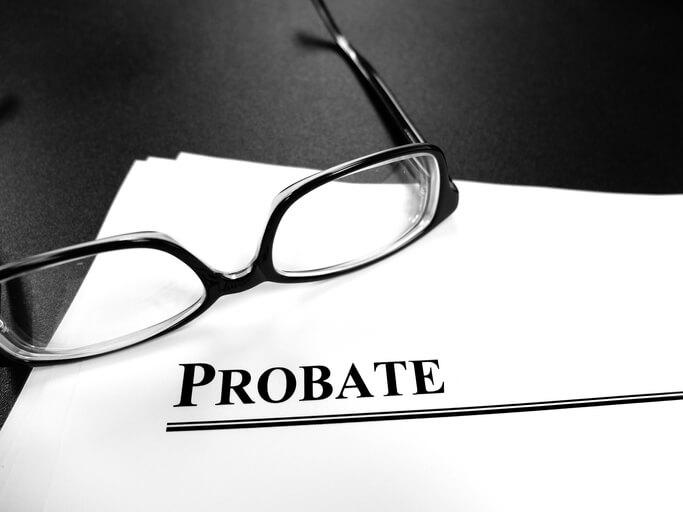Do I need probate if there is a Will?
When you are dealing with the death of a loved one, especially if you have been asked to be the executor of the estate, you may feel overwhelmed by the legalities of distributing assets and settling the estate. Dealing with assets, Wills, and probate solicitors may seem overly complicated, and you may even be asking yourself, “What is probate?” and “Do I need probate if there is a Will?” It is important to understand the probate process, especially when there is a Will, so we offer this simple guide to help you navigate this unfamiliar territory.
What is Probate?
Probate is the legal process through which a deceased person’s assets are distributed and their final affairs are settled. The aim of Probate is to:
- Validate the Will, where applicable. For a Will to be legally valid, it must have been signed in the presence of two witnesses, created without external pressure and with full mental capacity and understanding.
- Pay any outstanding debts and taxes.
- Collect in the remaining assets and distribute among the beneficiaries in accordance with the terms of the Will.
The term ‘probate’ also refers to a legal document, known as the ‘Grant of Probate’ if there is a Will or ‘Grant of Letters of Administration’ if there is no Will. A Grant of Probate is a legal document giving a person or people authority to handle a deceased person’s estate and is obtained from HM Courts and Tribunals Service (formerly known as The Probate Registry). If there is a Will, the person(s) with authority to handle the estate are the named Executors, if there is no Will this is the next of kin according to the intestacy rules. Institutions such as banks and building societies will need sight of a Grant of Probate before they accept a person(s) authority to manage the assets of the deceased person in question.
When is Probate required?
Probate is necessary to ensure that everything is carried out correctly in the distribution of assets, whether there is a Will or not. When a Will is in place, probate safeguards that person’s wishes as well as enforcing the law. However, not all estates require probate even if there is a Will. Probate may therefore be necessary in the following circumstances:
- Substantial estates: for estates including multiple assets such as high value bank accounts, investments, and property.
- Property ownership: if the deceased owned property in their sole name, probate may be required to sell or transfer the property to the designated beneficiary(s).
- Multiple beneficiaries: when there are multiple beneficiaries named in a Will, probate can ensure the assets are distributed fairly.
- Disputed Will: if the validity of the Will is contested, probate can settle disputes through the Court.
- Unsupervised assets: assets without named beneficiaries or joint owners may require probate for distribution.
When is Probate not required?
Probate may not be necessary in the following circumstances:
- Joint ownership: assets owned jointly and held as ‘joint tenants’ which means that each joint tenant has equal rights to the whole property, pass automatically to the surviving owner(s) without probate. It is important to note however, that assets held jointly but held as ‘tenants in common’ which means that each tenant in common can hold a different share of the property, pass to the named beneficiary(s) under the Will, or the intestacy rules if there is no Will. In this case, probate may still be necessary, despite the property being owned jointly.
- Beneficiary designations: assets such as life insurance policies and certain pensions that have named beneficiaries transfer directly to them.
- Living Trust: property held in a living trust bypasses probate and is distributed according to the trust’s terms.
- Small estates: If a person dies without many assets there may be no need for probate. However, the threshold varies between banks and financial institutions and therefore the relevant institutions must be consulted as this can vary with each individual case. However, if the estate consists solely of cash and personal belongings, probate may not be necessary.
Benefits and Challenges of Probate
The main benefit of probate is that it provides a structured process for making sure the assets of the estate are protected and distributed correctly and it can help to minimise and resolve disputes. The challenge is that it can be time consuming to obtain the Grant of Probate, which can subsequently cause a delay in the distribution of assets. It can also be delayed further if the probate is filed incorrectly, which is why it is so important to seek legal assistance when filing for probate.
Be Proactive in Enlisting Estate Planning Assistance
It is always best to seek professional legal advice when dealing with financial matters, because a professional will understand the specific requirements and implications for your particular situation. There is no need to handle your estate planning or the probate process alone, when you can trust the reliable and approachable legal experts at Parfitt Cresswell to help. First formed in 1908, we have grown to a well-established and expanding regional firm with offices in London, Berkshire, Surrey, Sussex, and Kent, with nearly 100 members of staff. Because we understand that people often need legal services during an emotionally challenging time, we are focused on offering first-class legal advice and client service. Our excellent teams specialise in the provision of legal services including private client matters, family, property, commercial services, and employment law.
Call us today on 0800 999 4437 to arrange your complimentary initial consultation and speak with a legal expert. Alternatively, you can click here to arrange your consultation online via our website.

